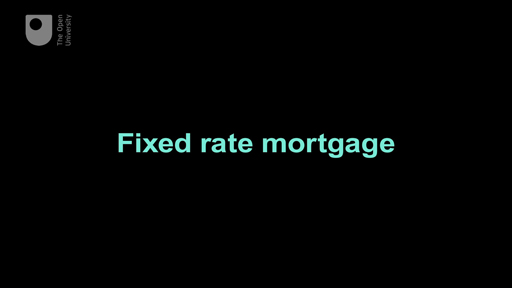6.1.1 The mortgage market
Buying a property, particularly your first property, usually involves taking out a mortgage – a loan secured against the home.
To guide you through what can seem like a maze of mortgages, here’s personal finance expert Jonquil to explain the six most common types: fixed rate mortgage, variable rate mortgage, capped rate mortgage, offset mortgage, flexible mortgage, shared ownership mortgage.

